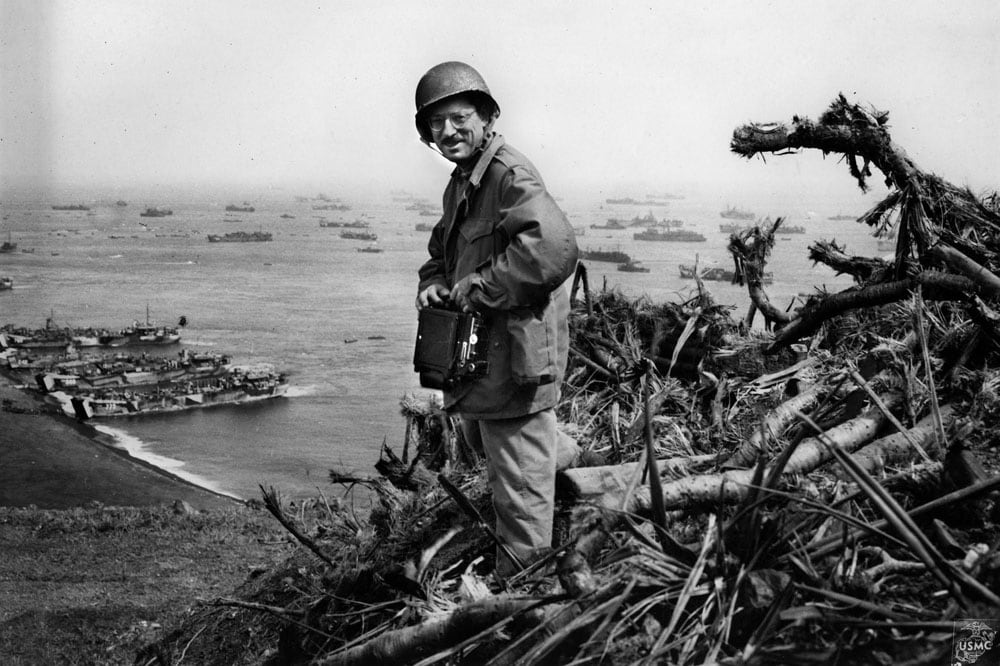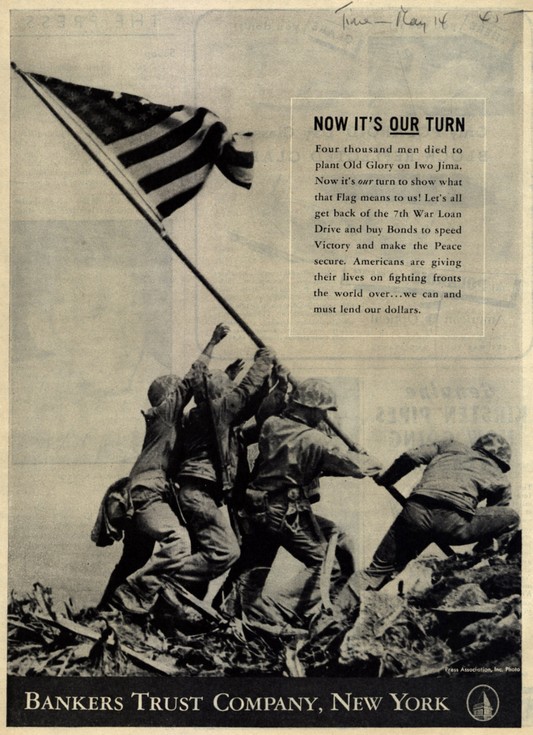"In honor and in memory of the men of the U.S. Marine Corps who have given their lives to their country since November 10, 1775."
Across the Potomac River from Washington D.C. in Arlington Ridge Park is the U.S. Marine Corps Memorial. It consists of six men, five Marines and one Navy corpsman, raising the flag on Iwo Jima during the Second World War. Sculpted by Felix de Weldon, it is based on a famous photograph that ended up on the front page of almost every American newspaper. Capturing Iwo Jima helped America win the war. Capturing the photograph helped Joe Rosenthal win the Pulitzer Prize.
It was February 23, 1945. America had been at war for over three years, the world for almost five. American troops had island hopped across the Pacific in their battle against Japan. Iwo Jima was the last big territory to conquer. But it would come at a high price. Out of the 70,000 Marines who invaded the island, almost 7,000 suffered casualties. Japan had an even higher casualty rate at 23,000.
The Marines were determined to capture the island and what better way to do that than to take its highest peak, Mount Suribachi. The Americans fought well that day and a few Marines mounted a small flag on top of the mountain.

Mount Suribachi circa February 1945 courtesy https://bluejacket.com/ww2_images.html.
Down below, photographer Joe Rosenthal heard about the flag planting. Louis Lowery had already taken a shot of the flag, but Joe thought it was still worth investigating. He set out to climb the 550-foot volcano, sidestepping mines as he ascended. Half an hour later he reached the peak. But he did not find what he expected. Six servicemen were planting an even bigger Stars and Stripes to replace the smaller one. At 5 foot 5 inches tall, Joe could not see much. So he hastily made a pile of rocks and grabbed a sandbag. He stood on top of the homemade pedestal and snapped the photograph. Then he slowly made his way down the mountain, his Speed Graphic camera in hand.
Joe was surprised to see his photograph on the front page of almost every newspaper the next day. The picture went a long way in building America's moral. As author Hal Buell explained: "It said victory more than it said anything."

Joe Rosenthal poised with his camera on Iwo Jima courtesy
http://alchetron.com/Joe-Rosenthal-1369464-W.
http://alchetron.com/Joe-Rosenthal-1369464-W.
Later that year, Joe Rosenthal won the Pulitzer Prize for his efforts. However, he was reluctant to take the credit, saying: "I took the picture, the Marines took Iwo Jima." He would go on to work for the San Francisco Chronicle as a general assignment photographer for 35 years. But his most famous photo remains the Iwo Jima image.
Out of the six servicemen who raised the flag on Iwo Jima, three died in battle later in that campaign. However, the surviving three went on to sell war bonds featuring the famous photograph. Assets from the war bonds totalled 23.6 million dollars.

Advertisement for war bonds courtesy www.awesomestories.com.
Source: www.washingtonpost.com
For more information:
1. Read Hal Buell's book Uncommon Valor, Uncommon Virtue.
2. Watch the movie "Flags of our Fathers" (Clint Eastwood).

No comments:
Post a Comment